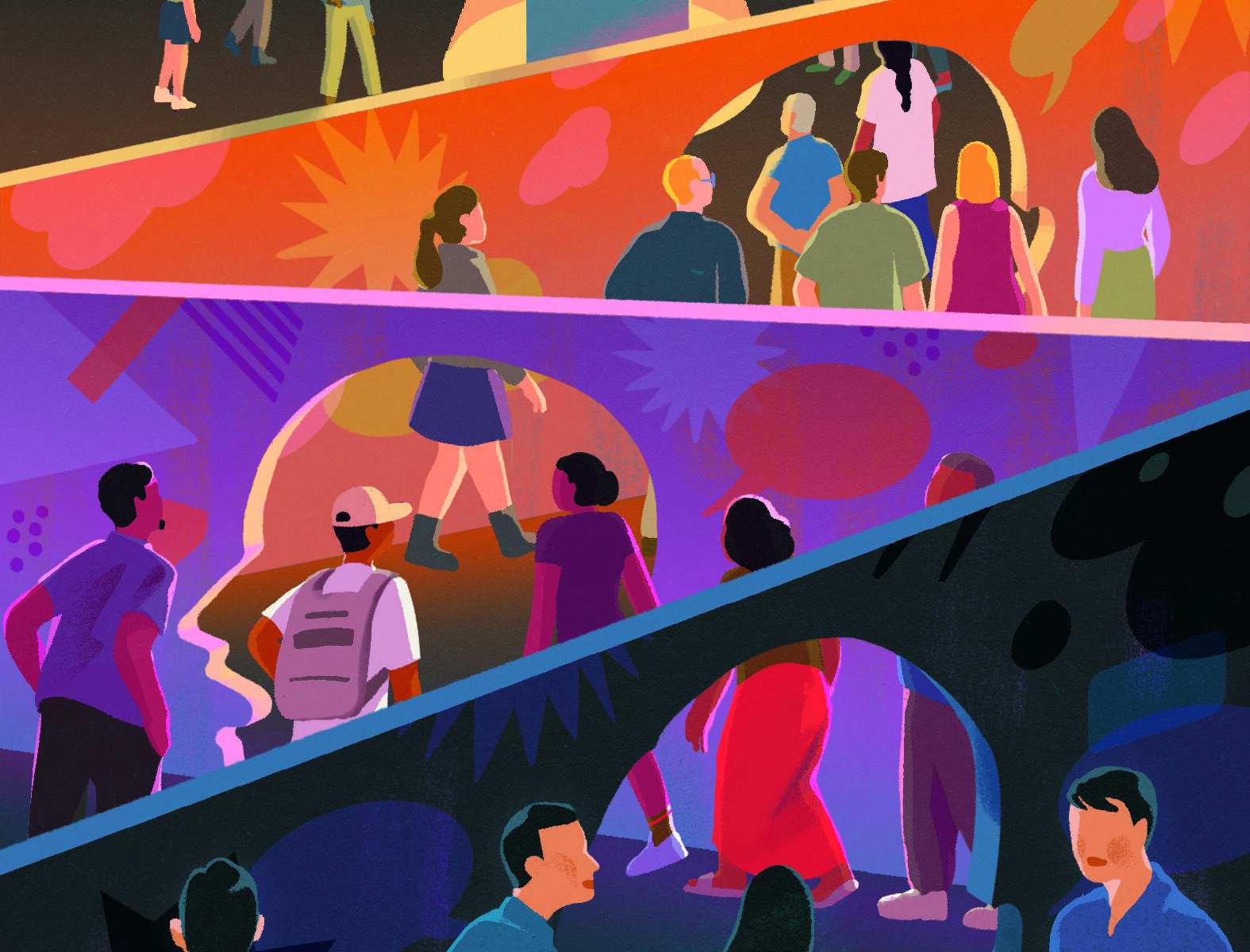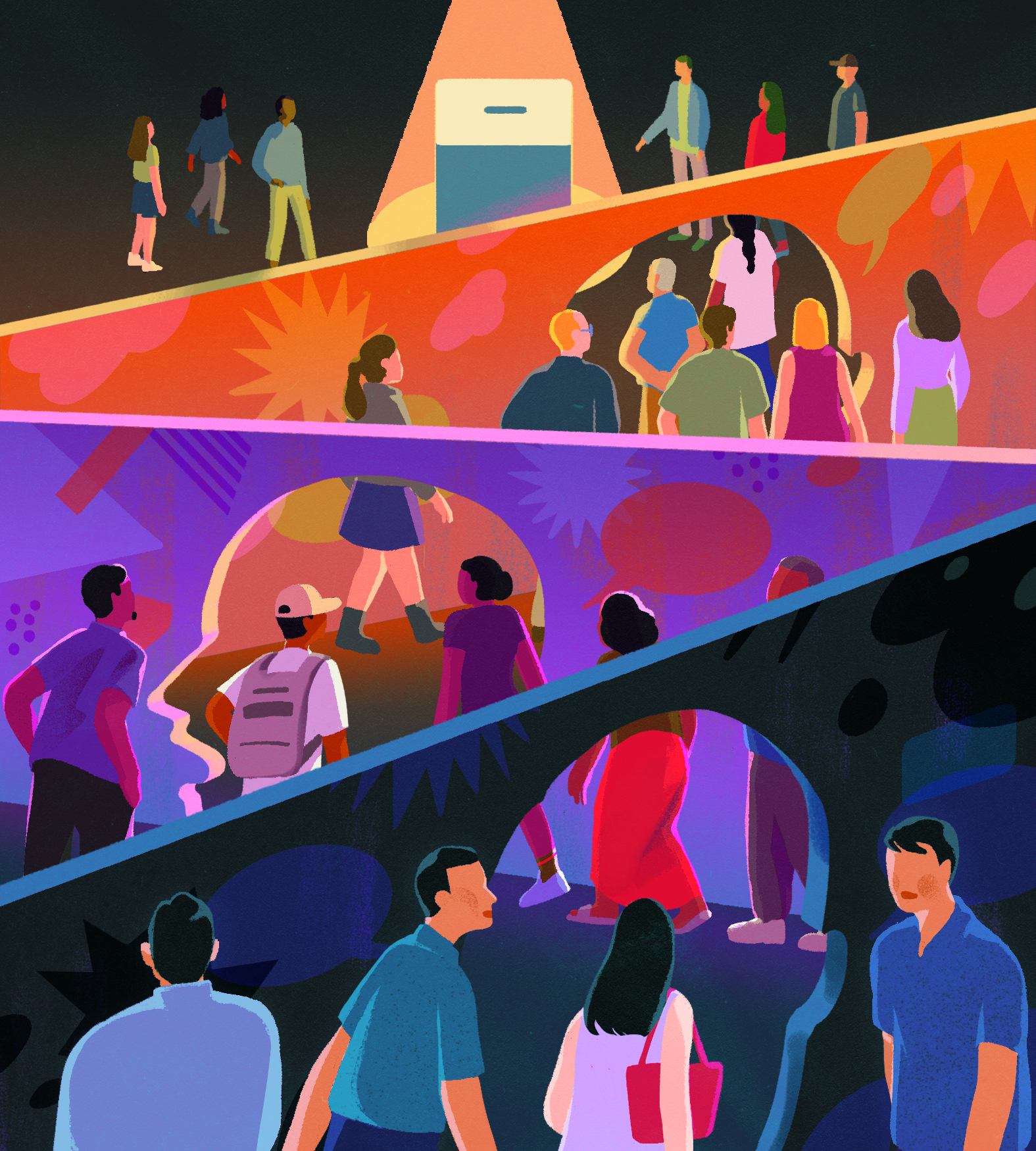From its inception, Canada has been a country founded by and for immigrants. But, for just as long, a deep anxiety has been cultivated about how new Canadians shape our politics.
No sooner had our constitution acts been signed, in 1867, that politicians in the capital began to warn that its rapidly growing Irish population had split allegiances—that the Protestants were too concerned with fighting the Catholics; and that the Catholics were interested in Canada only insofar as it could help the republican cause. Those Irish may have been living in Canada, it was warned, but their hearts were elsewhere.
It all came to head when a small band of Irish nationalists shot and killed Member of Parliament Thomas D’Arcy McGee, a father of confederation, on the steps of his boarding house in Ottawa. A poet and former anti-British revolutionary, McGee’s public condemnation of the Irish independence movement resulted in him being branded a traitor. It was Canada’s first political assassination, and would remain the only such killing for an entire century.
But even amidst this sectarian tension, politicians began to see political opportunity. Catholics voted with Catholics, and Protestants with Protestants: Aligning with one side would prove extremely advantageous.
In the years that followed, and as the country was built up brick-by-brick, these obsessions with religion and nationality became far less pronounced. By the time Brian Mulroney became prime minister in 1984, you would be laughed out of the room for suggesting that his habit for singing Irish folks songs meant he was an agent of Dublin. (In fact, thirty years later, Mulroney would revisit this tradition by serenading Donald Trump with the song “When Irish Eyes Are Smiling” at his Mar-a-Lago Palm Beach estate.)
Now, in many ways, there’s been a return to the paranoia and pandering of early Canada.
Waves of revelations from investigations into foreign interference have put this issue directly on the frontburner. A sprawling report from the National Security and Intelligence Committee of Parliamentarians (NSICOP) published in June 2024 detailed, with the help of a pile of classified intelligence, a complicated network of foreign diplomats, community media outlets, and local “proxies,” all working to benefit foreign governments — India and China, in particular. That report ushered in a whole new era of suspicion and paranoia. As one second-generation Member of Parliament told me, it’s raising old fears that immigrants in this country have “dual loyalties.”
But this ordeal should really force the nation to look inward. In recent decades, the “old stock” political actors — that is, descendants of those who immigrated here generations ago — professionalized the political effort to sway and mobilize newer immigrant and religious communities in such a way that has reduced large numbers of people to a monolith.. Politicians rely on community powerbrokers to target specific facets of someone’s identity to deliver electoral wins, and then assail their political opponents for being beholden to different community powerbrokers.
During his campaign to become the premier of British Columbia in 2023, BC United leader Kevin Falcon specifically propositioned members of the Guanghua Vancouver Alumni Association with a promise to reopen standalone trade offices in the Asia-Pacific region. Appealing to those affiliated with flagship Chinese institutions, it assumed the priorities of the province’s significant Chinese population amidst rising tensions.
Elsewhere, in 2021, a writer in the Toronto-based Tamil news outlet Thesiyam-Nation — identified only as Moorthy — tried to grapple with the bloc politics their community had participated in over the years.
The fact is that politicians look at immigrant communities as two-dimensional political actors — and, too often, the communities are happy to play along, in hopes that moving as a community will maximize their political power
“Our Tamil community accepts and expects these types of campaign techniques,” Moorthy, writes. But, they went on to argue, perhaps the community ought to become more skeptical of Canadian politicians who show up to ask for money and votes every few years.
The problem goes well beyond any one politician, though. The fact is that politicians look at immigrant communities as two-dimensional political actors — and, too often, the communities are happy to play along, in hopes that moving as a community will maximize their political power. This isn’t much different than how politicians jockeyed for affection from the Catholic and Protestant Irish.
Get the
Three from 3
newsletter
Join our global community of sharp, curious thinkers to receive a carefully curated email of the three most important things to read, see and do this week.
Listen and learn.
Tune into Third Culture Leaders, a podcast hosted by our co-founder and publisher, Muraly Srinarayanathas.
Explore how leaders skillfully navigate multiple cultural landscapes, leveraging their diverse backgrounds to drive innovation and change.
But bloc politics also make communities easier to ignore, or worse, target, if they endorse one’s political opponent. As seen with the revelations from the NSICOP report, bad actors can infiltrate these bloc politics to advance their own geopolitical ends. At the end, entire neighbors, communities and nationalities have been politicized.
And so this problem goes in three waves: Politicians cast aspersions on whether immigrant communities are loyal to Canada; then they turn up and ask them for votes and donations; then they denigrate their opponents for being beholden to the communities which they pander to.
However, this can all be remedied pretty easily; we just have to begin addressing immigrant communities as complicated, diverse networks of people with many intersecting concerns, priorities and aspirations, apart from a shared national identity. Or, we can take cues from projects where the political dynamism of Canadian immigrants is already being recognized. The federally-funded organization Immigration Partnership Winnipeg states that the newcomer population of the city is slated to reach 41% by 2041. Each election cycle, they promote a staunchly non-partisan voting campaign each cycle titled, “Got Citizenship? Go Vote!” as a means to curb the concept of a singular and dependable “ethnic vote”.
Notable transformations in how politicians court immigrant communities will make it easier to counter foreign influence operations, it will reduce stigmatization of foreign-born Canadians—and it will make our democratic contests fairer and more interesting.

